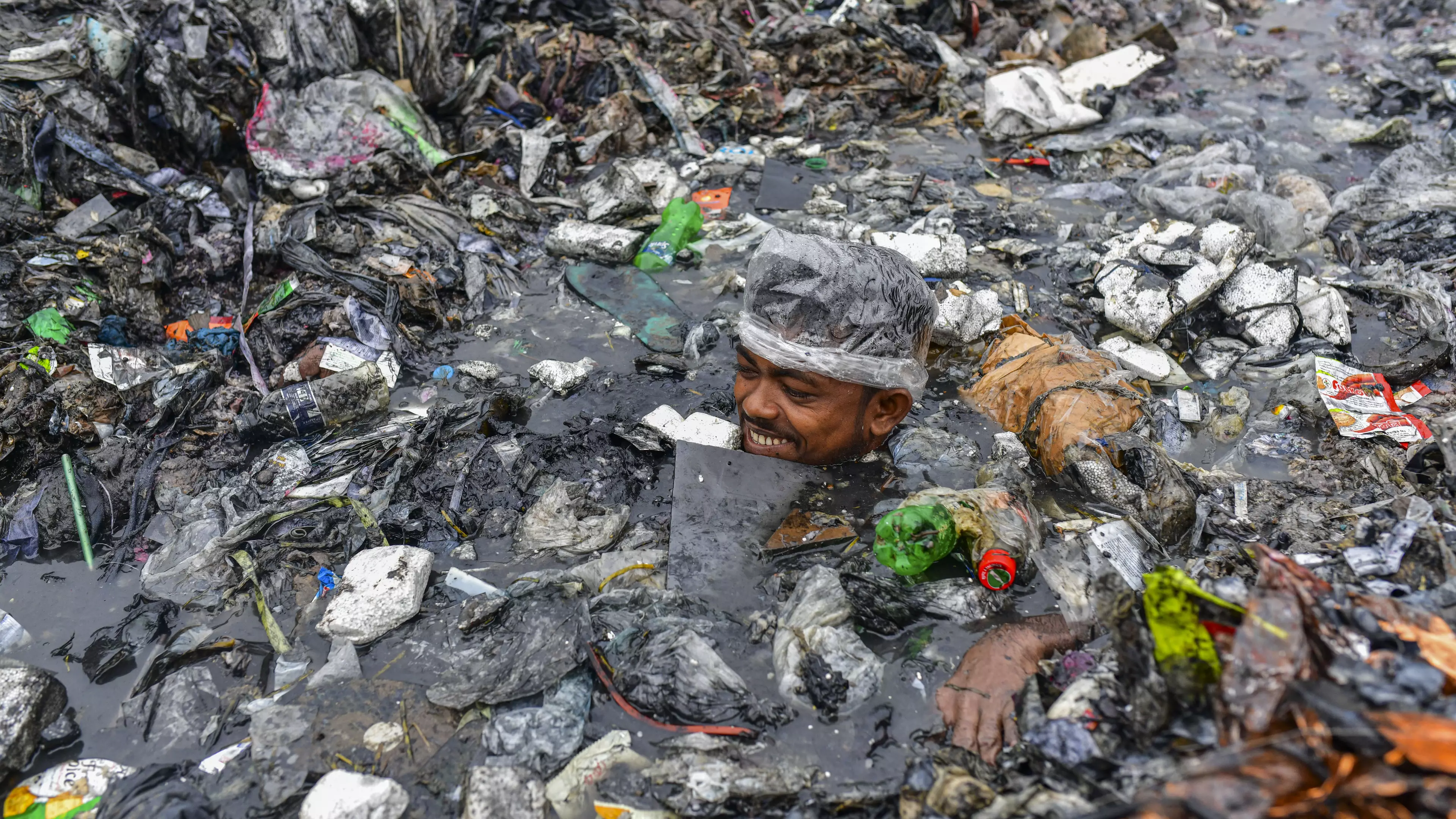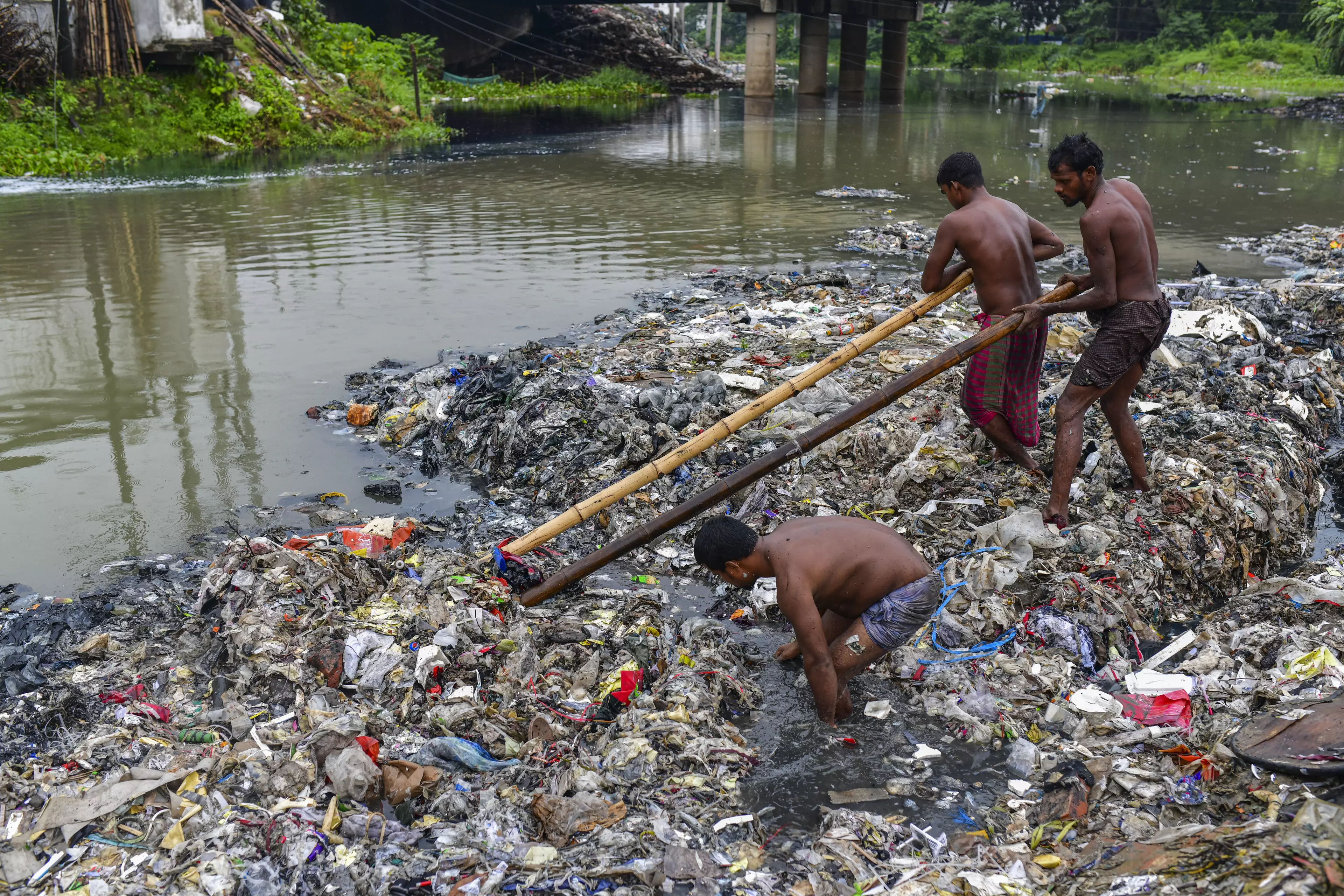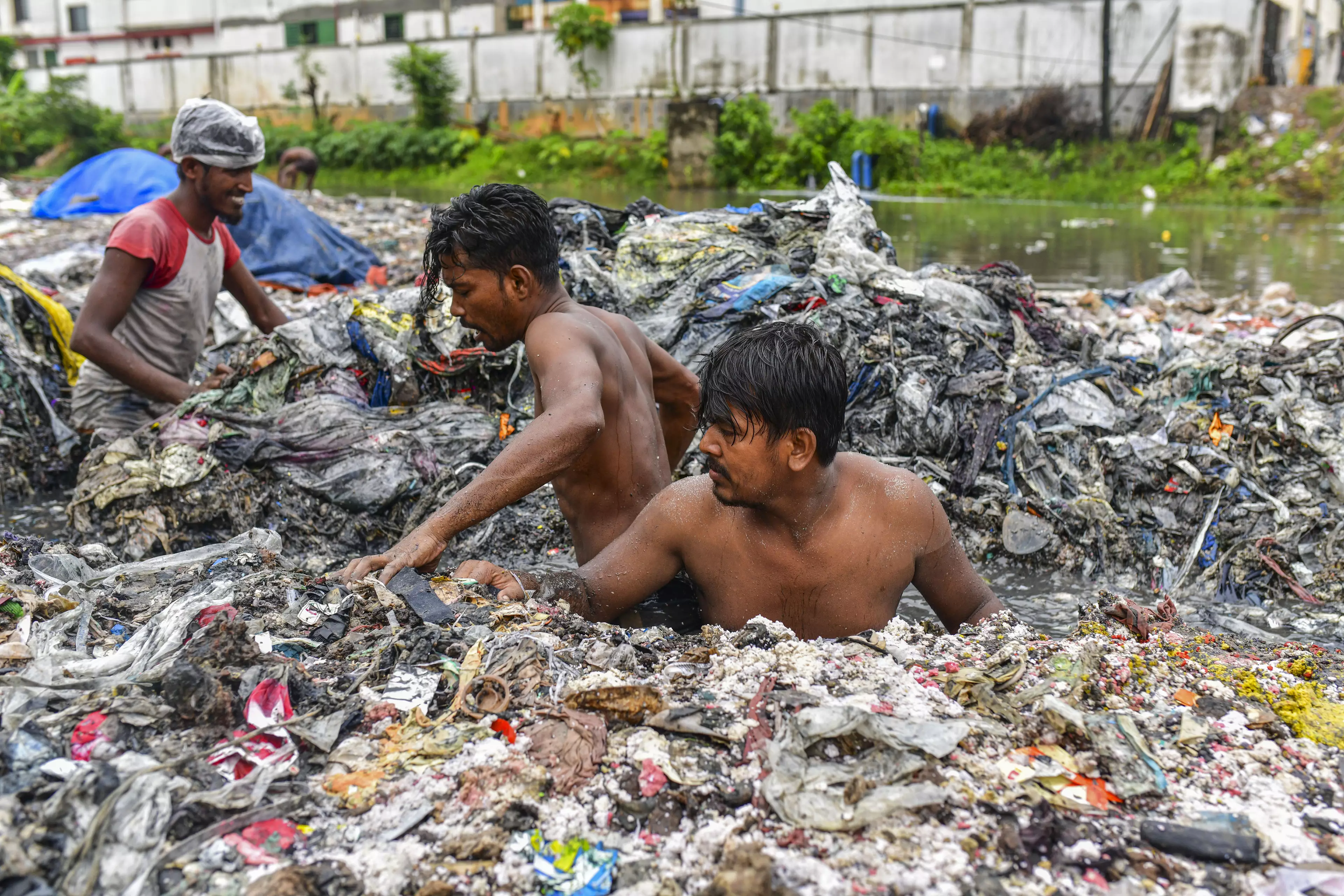
Street cleaners in Bangladesh have been pictured bravely cleaning the country's canals with no PPE as they swim neck deep in rubbish.
The coronavirus lockdown has caused mass littering, with the UK seeing a huge increase in fly tipping, but the canals of Bangladesh have really suffered.
Volunteer street cleaners can be seen swimming in the rubbish wearing just plastic bags on their head for protection.
Advert
The water they are swimming in was a canal, but huge amounts of urban waste have created a land mass, which sits about 24 kilometres north west of the capital Dhaka.
From the photos you can see huge mounds of black bin bags, plastic bottles, food wrappers and general household waste clogging up the canal in Savar.

According to New Age Bangladesh, cleaners have dumped domestic, plastic, industrial and medical waste at 50 spots by bodies of water.
Advert
Officials from the area said they collected 200 tonnes of waste every day, which was then dumped in areas connected to rivers.
In a bid to stop the waste from being dropped off and damaging the environment, the Bangladeshi High Court declared that all of the country's river have the same legal status as a human being last year.
The verdict was unique and helped to recover the land. State Minister for Shipping Khalid Mahmud Chowdhury said it led to 15,175 illegal structures being removed from the ports in the Buriganga, Turag, Balu and Shitalakkhya rivers. In total 566.12 acres of riverbanks were restored.
Speaking to local news outlet Dhaka Tribune, secretary at the Water Resources Ministry Kabir Bin Anwar said: "We will not stop until we evict all 44,000 illegal structures.
Advert
"Every district administration has worked tirelessly for a year to compile this list of illegal encroachment. We have also set up a control room dedicated to this task in the ministry.
"We will install walkways and plant trees to deter people from encroaching on these territories again."

The mayor of Savar, Abdul Goni told New Age that there was not a specific waste area until now, so they had no choice but to take it to the lowlands.
Advert
In a step forward, the municipality has now signed a contract with a company from Finland which specialises in waste management.
He added that he hoped the situation would improve now there is a plan for safe disposal of waste.
Featured Image Credit: Zabed Hasnain Chowdhury/SOPA Images/Shutterstock